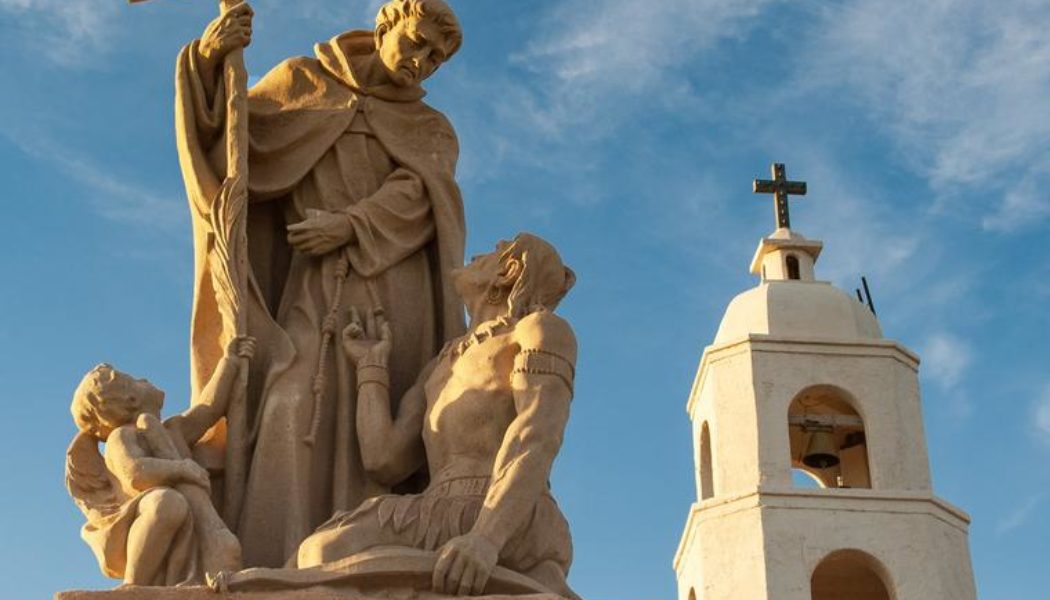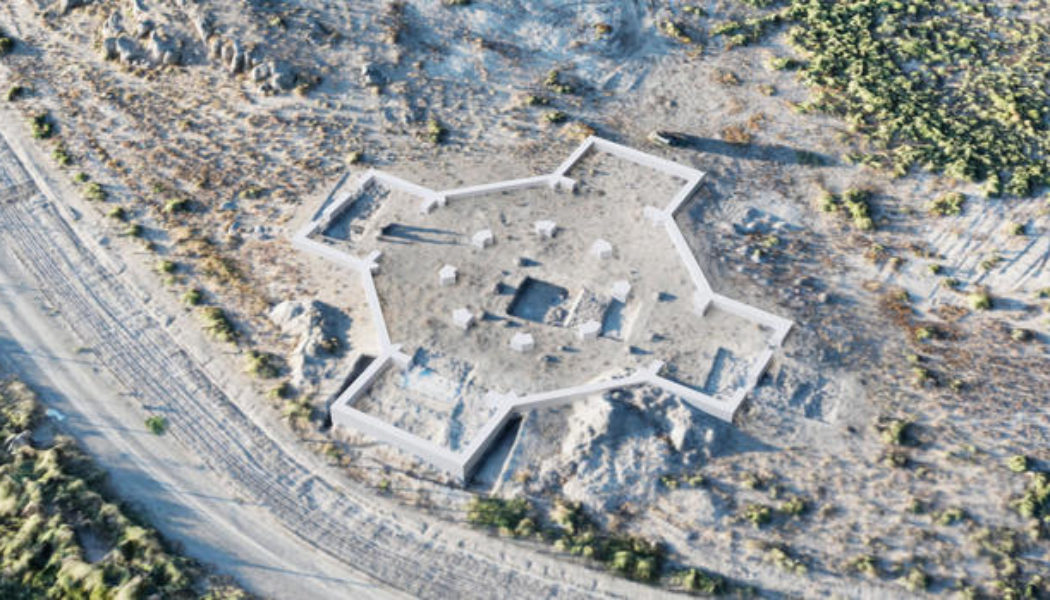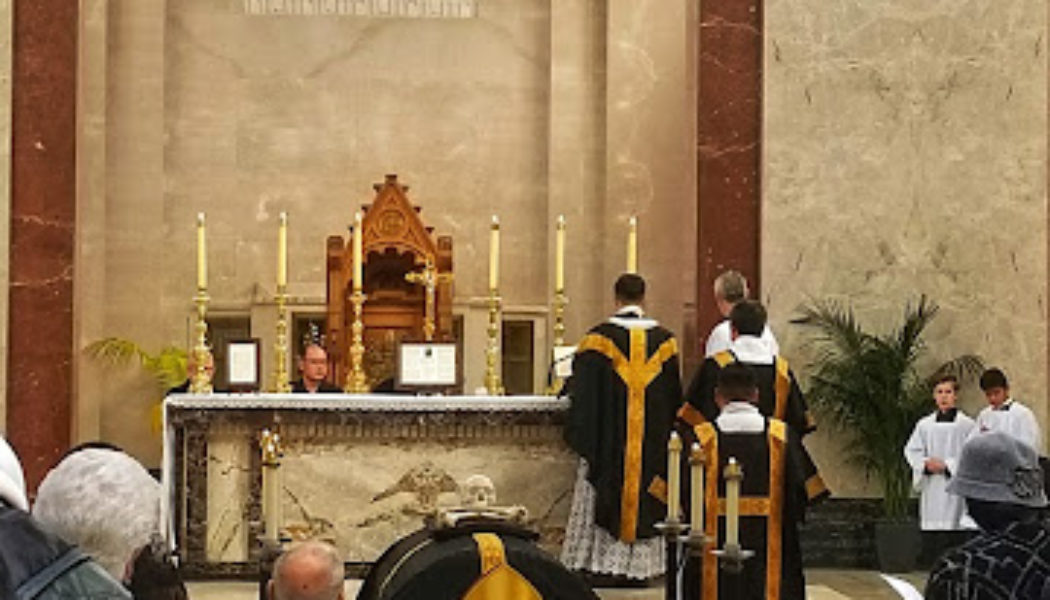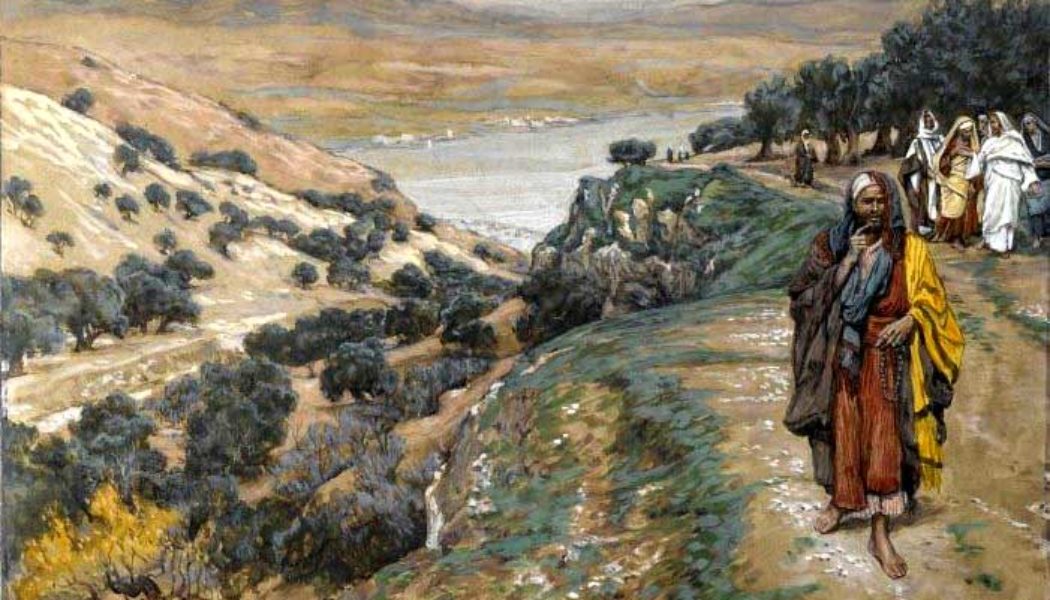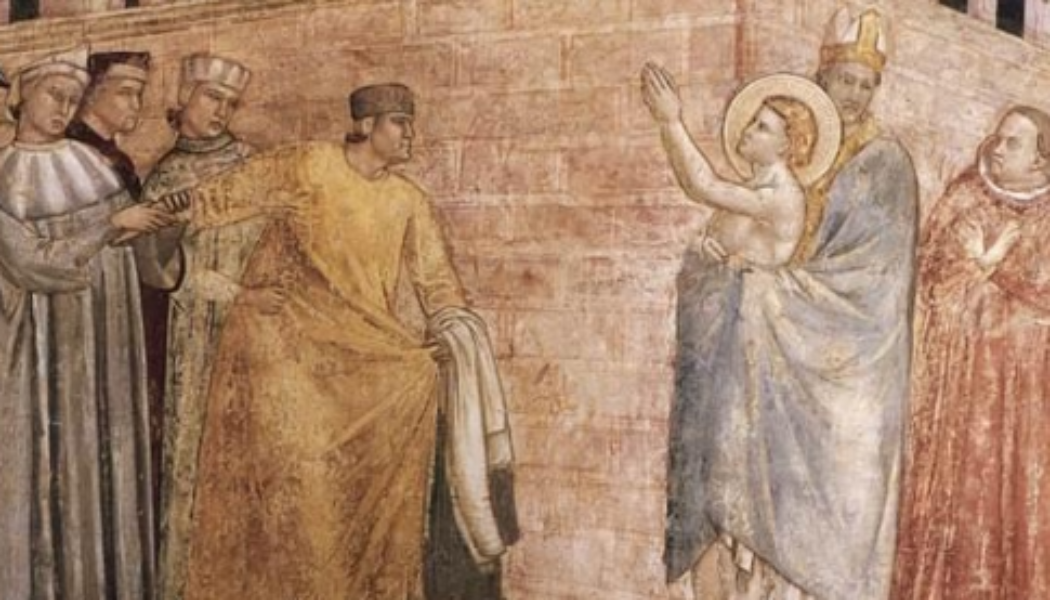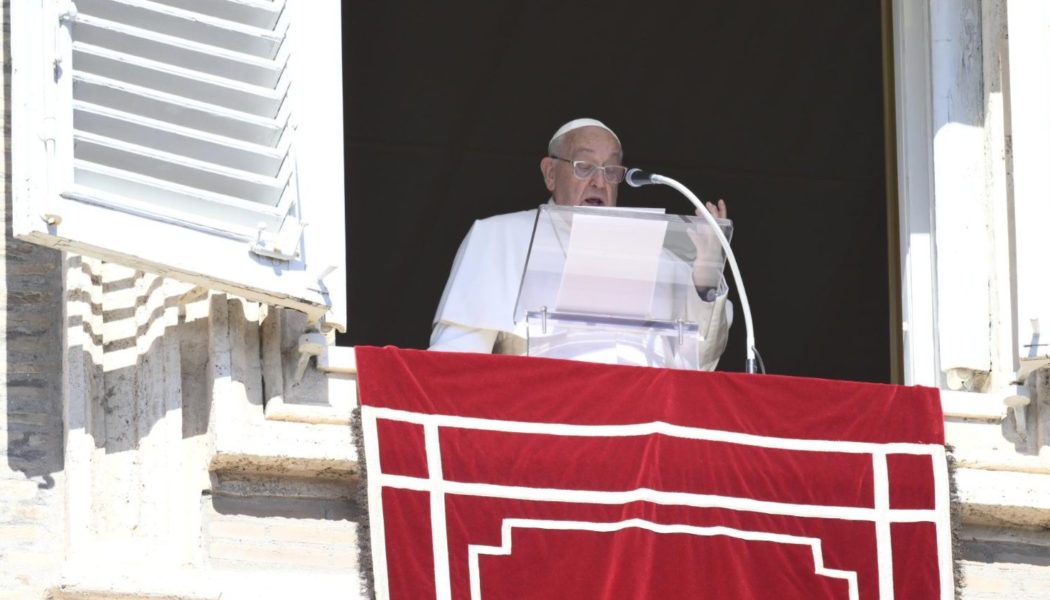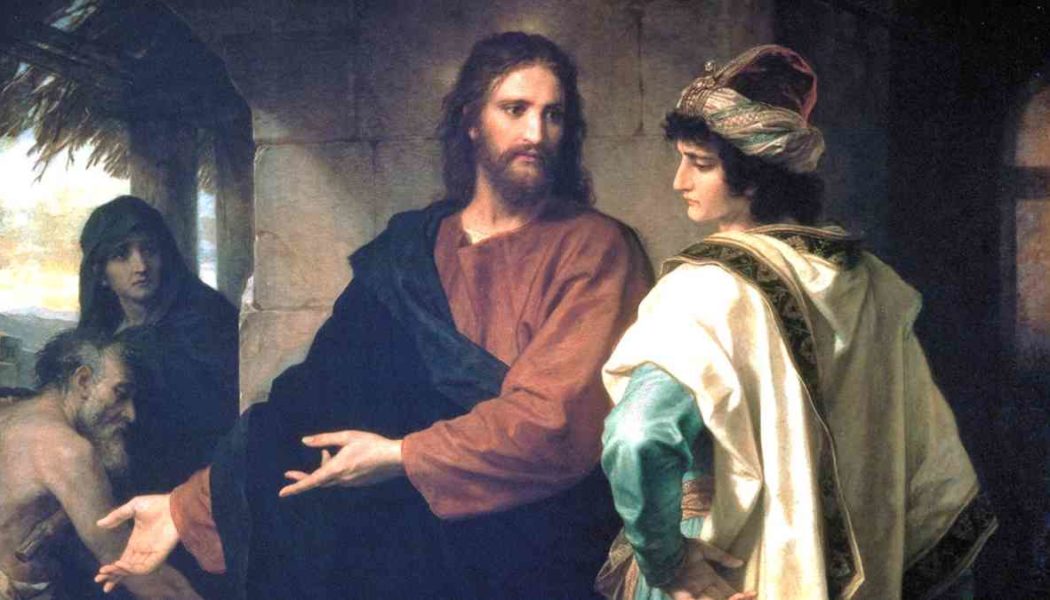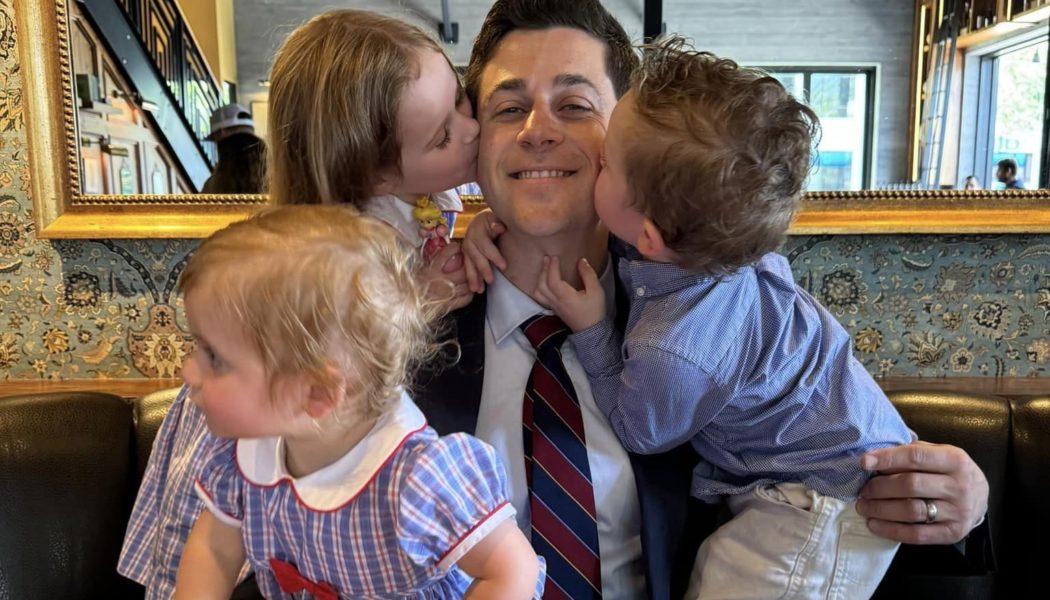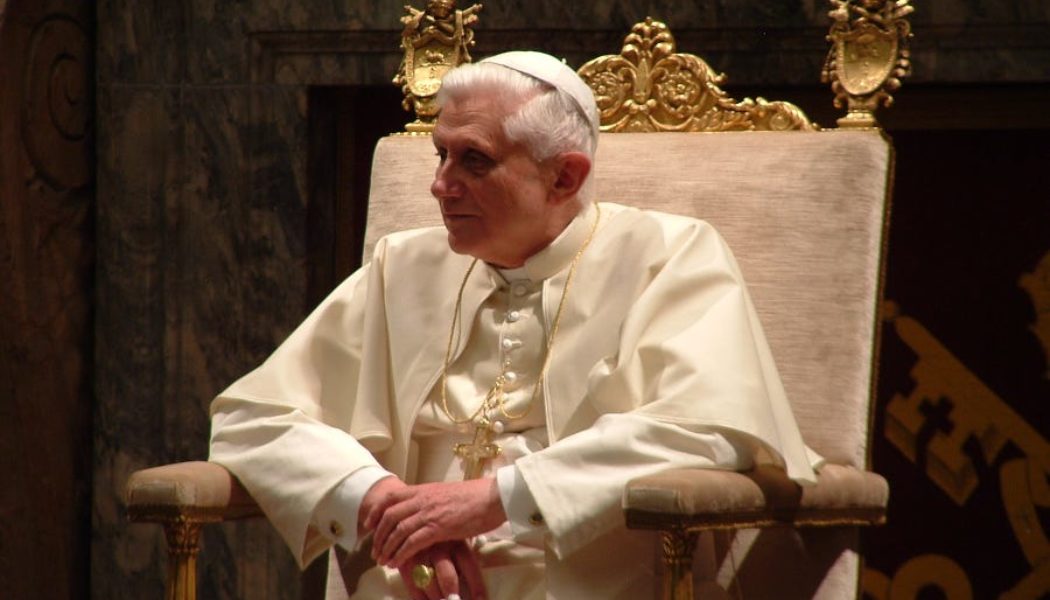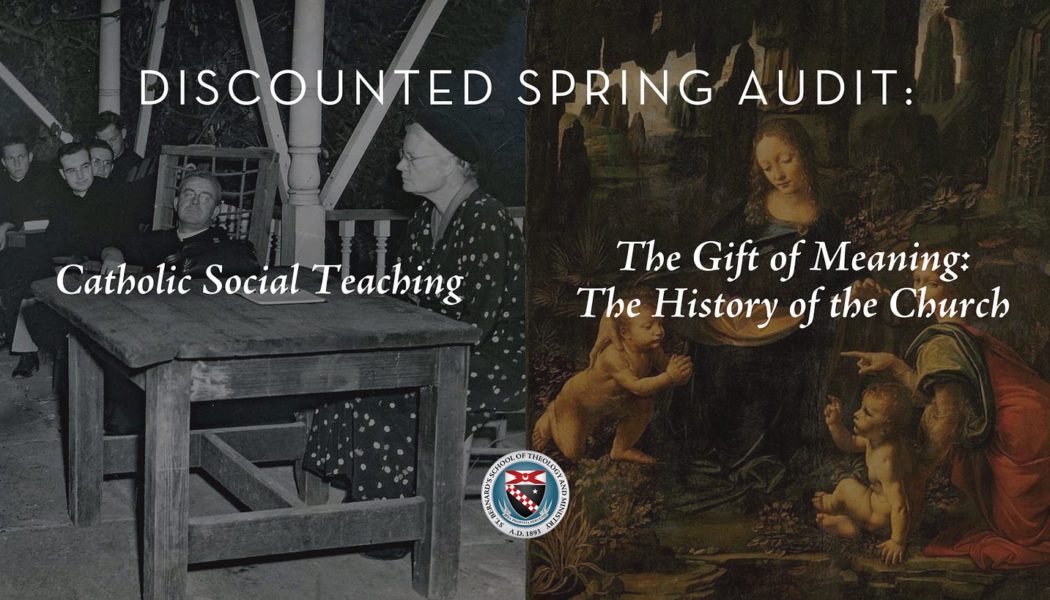Blog
God or Nothing? Modern Science Points Only One Way, Says French Author…
God or nothing? Modern science points only one way, says French author Skip to content Michel-Yves Bolloré is the co-author of “God: The science, the evidence,” a new book that aims to lay out the scientific evidence for the existence of God. In a text spanning nearly 600 pages, he and his co-author Olivier Bonassies, argue that factors such as the thermal death and expansion of the universe, as well as its fine-tuning, make the existence of a creator the most rational explanation for its existence. Rendering of the universe at less than a billion years old. Image via NASA. The book’s foreword is written by Nobel prize winner and physicist Robert Wilson, and around 30 other scientists, from a variety of fields, contributed to the book, which also delves briefly into the historical, p...
The 4 Forgotten Martyrs of the American Southwest…
July 17, 1781, in Yuma, Arizona, was, like virtually all July days along the lower Colorado River, filled with bright sunshine and extreme heat. Soon it also would be filled with the screams of warriors, the musket shots of soldiers, and the moans of the dying. The Quechan Indians had risen up against the Spaniards among them. Within four days, 131 Spanish would be dead, including four Franciscan missionaries: Fathers Francisco Garcés, Juan Antonio de Barreneche, José Matías Moreno and Juan Díaz. By 1781, Quechan hostility toward the Spanish had been rising for several years. But at first, thanks largely to the earnest, likable and peaceable Father Garcés, there had been a golden period of amity and goodwill. Garcés first arrived at Yuma in August 1771. As the pastor at lonely and hi...
Archaeologists Uncover One of the World’s Oldest Churches: ‘Sensational Testimony to Early Christianity’…
Archaeologists have unearthed the remains of an Armenian church dating back almost 2,000 years, making it the oldest structure of its kind in the country and one of the oldest in the world. Germany’s University of Münster, which partnered with a team at the Armenian Academy of Sciences on the archaeological dig, announced the discovery Friday and called it “a sensational testimony to early Christianity in Armenia.” The joint team of archaeologists and researchers uncovered the building during excavations in Artaxata, once a thriving metropolis and commercial center, which for several centuries before and after the common era served as the capital of the ancient Armenian kingdom. Excavations were part of the larger Armenian-German Artaxata Project, an initiative started in...
How to Make a Family Necrology — and Why You Should Do It…
What Is Necrology A necrology refers to a list or record of individuals who have died, especially within a specific community, organization, or during a particular time period. In the context of the Church, religious orders will keep necrologies to record the anniversary of the death of the members of the Order. This gives the community the opportunity to remember to pray for the repose of the soul of its members – even members who died long before the current members were alive. In so doing, we are performing a spiritual work of mercy for souls. Why Make A Necrology While we often think of praying for the dead in the month of November, all year we have ample opportunities to pray for the souls of the departed. Through almsgiving, penance, and fasting done with the intention of freeing sou...
What Does Heaven Cost? A Homily for the 28th Sunday of the Year…
The Sunday Gospel invites us to wrestle with these fundamental, essential, focal questions: “What does Heaven cost?” and “Am I willing to pay it?” I. Problematic Pondering – A rich man asks Jesus, Good teacher, what must I do to inherit eternal life? Though his question is a good one, it is problematic because he couches it in terms of his own personal power and achievement. He wonders what he himself must do to attain eternal life. The problem is that none of us has the holiness, the spiritual wealth, or the power to attain Heaven based merely on what we do. The kind of righteousness we need can come only from God. The misguided question of the rich man betrays two common misunderstandings that people bring to the question of salvation and the need for r...
Carry No Purse, No Bag, No Sandals…..
Having wealth is damaging to the pursuit of the kingdom because the very having does something to one’s inner life, one’s very ability to love God for his own goodness and others in and for him.”― Fr. Thomas Dubay Today’s Gospel at Mass had me thinking about a homily I heard a few years ago in Omaha on Luke 10:4, which contains Jesus’ instructions for the disciples as he sends them out on mission: “Carry no purse, no bag, no sandals…” The priest said something to this effect: Jesus forbade the disciples on mission from carrying money or extra things. Even a second pair of sandals. That’s edgy! Why? To lighten their load? Sure, maybe. To teach them trust in God? Okay, that’s true. But I think the deepest reason is rooted in human psychology. When you have possessions, money, extras, things ...
Pope’s Sunday Angelus: ‘True Wealth Is to Be Looked Upon With Love by God’…
Angelus Angelus Dómini nuntiávit Mariæ.Et concépit de Spíritu Sancto.Ave Maria… Ecce ancílla Dómini.Fiat mihi secúndum verbum tuum.Ave Maria… Et Verbum caro factum est.Et habitávit in nobis.Ave Maria… Ora pro nobis, sancta Dei génetrix.Ut digni efficiámur promissiónibus Christi. Orémus.Grátiam tuam, quǽsumus, Dómine,méntibus nostris infunde;ut qui, Ángelo nuntiánte, Christi Fílii tui incarnatiónem cognóvimus, per passiónem eius et crucem, ad resurrectiónis glóriam perducámur. Per eúndem Christum Dóminum nostrum. Amen. Gloria Patri… (ter)Requiem aeternam… Benedictio Apostolica seu Papalis Dominus vobiscum.Et cum spiritu tuo.Sit nomen Benedicat vos omnipotens Deus,Pa ter, et Fi lius, et Spiritus Sanctus. Amen. The Angelus Prayer The Angel of the Lord d...
This Sunday, Give Up the Lie: Meet Jesus and Offer Him Your True Self…
Too often, when we look in the mirror, we see a dream version of ourselves instead of what is in front of our eyes. We so badly want to be the “best version of ourselves” that this is all we see. But then, when we get a glimpse of our true selves, it can be jarring — like seeing a picture of ourselves and saying, “Yikes. I thought I looked better than that!” That is what happens to the rich young man when he meets Jesus on the 28th Sunday in Ordinary Time, Year B. Jesus insists that we have each have the same face-to-face encounter with him, give up the lie, and see who we really are, in him. We probably think of our relationship with Jesus in exactly the way the “rich young man” in the Gospel reading this Sunday thinks of his. When the young man asks Jesus how to attain eternal life, Jesu...
3 Simple Rules for the Rosary, from Actor David Henrie (‘Wizards of Waverly Place,’ ‘How I Met Your Mother’)…
As Catholics around the world celebrate October, the month of the holy Rosary, actor and director David Henrie recently shared with Our Sunday Visitor how this powerful prayer has impacted his life. Known for his roles in Disney’s “Wizards of Waverly Place” and the CBS sitcom “How I Met Your Mother,” Henrie has been open about the central role that the Rosary plays in his personal and family life, describing it as “non-negotiable” for him and his loved ones. Henrie’s commitment to the Rosary began long before he became a husband and father, but it has deepened with time, especially as he seeks to lead his family in prayer. He recalls that the Rosary brought him and his wife together early in their relationship. Henrie told Our Sunday Visitor that he proposed to her on the feast of Our Lady...
Growing Seeds of Faith in America: Catholicism in ‘A Tree Grows in Brooklyn’…
Sadie stood on the boat, heavy with child, a toddler clinging to her hand, the shores of France shrinking into the distance. It had been weeks already since she had left her home in Lebanon—where she had lived with her fellow Christians in fear and poverty due to Ottoman persecution. At the age of eighteen, she was going with her twenty-two-year-old husband to a place called St. Louis in the Americas, where his brother lived. My great-great-grandmother took a deep breath, centering herself in her faith, which she would need as she traveled surrounded by unfamiliar languages, sleeping in steerage, going to a great unknown. Dorothy waited behind the lunch counter in Joliet, Illinois, surrounded by flat, sweeping land. She was serving the men who came down the line. Her apron was tied neatly ...
How ‘Wir sind Papst!’ Became a Headline for the Ages…
How ‘Wir sind Papst!’ became a headline for the ages Skip to content Hours after Cardinal Joseph Ratzinger was elected pope in 2005, the German journalist Georg Streiter came up with a headline that’s still remembered almost 20 years later. Pope Benedict XVI, pictured on Jan. 20, 2006. Giuseppe Ruggirello via Wikimedia (CC BY-SA 3.0). Streiter, the political editor of the Bild newspaper, condensed Germany’s excitement at the election of its first native son in 482 years into three words: “Wir sind Papst!” (“We are pope”). Share Bild’s front-page headline on April 20, 2005, the day after Pope Benedict XVI’s election, brought a smile to the faces of millions of Germans and was shared around the world. Streiter died in August this year, at the age of 68, but his headline lives on. Germa...
Mater Et Magistra, La Suprema, and Disordered Desire…
Mater et magistra, la suprema, and disordered desire Skip to content Happy Friday friends, And a very happy feast of St. John XIII to all who celebrate — and all of you should. Papa Roncalli is best remembered as the pope who convoked Vatican Council II, and in that sense at least I tend to think of him as at least co-patron saint of this era in the life of the Church. Of course, he also is the pope who initiated the wholesale reform of the Code of Canon Law, recognizing that barely 40 years after its promulgation it was falling hopelessly behind the shifting realities of ecclesiastical life. More to the point for our current moment, John was also the pope who convoked a synod for the Diocese of Rome, this first in its history, and I often find myself thinking of the current synodal ...


